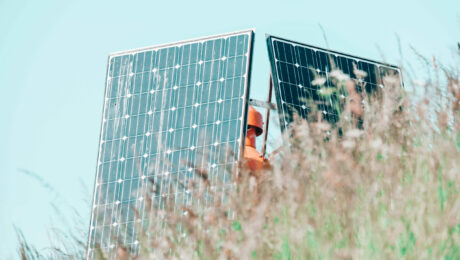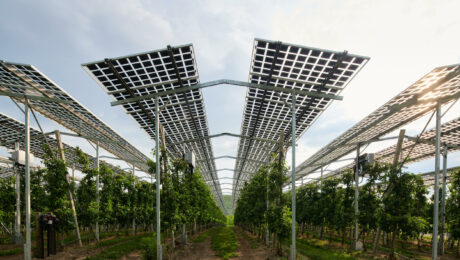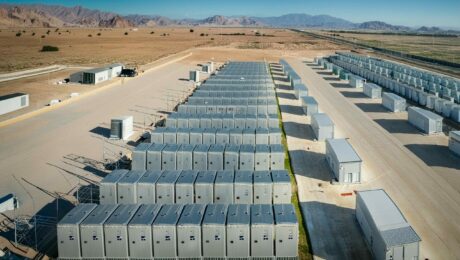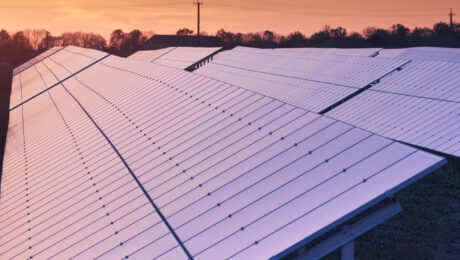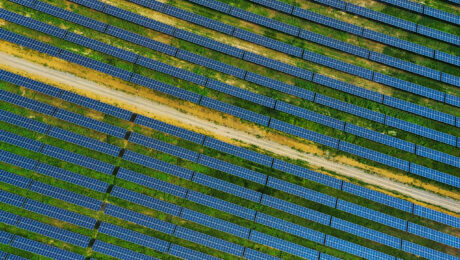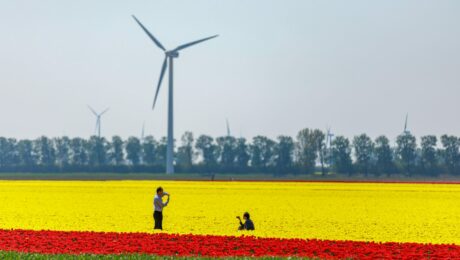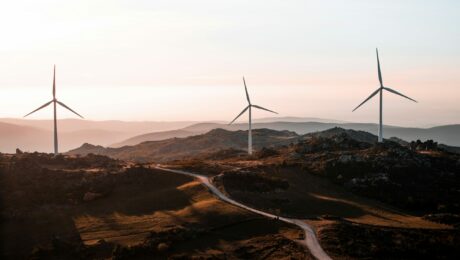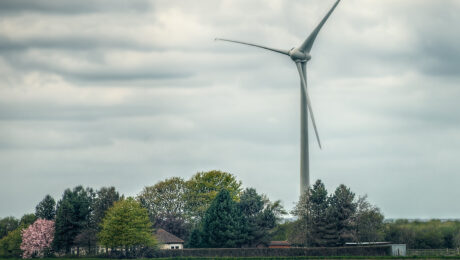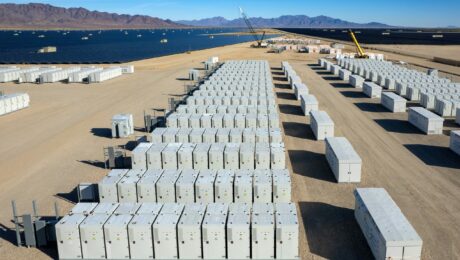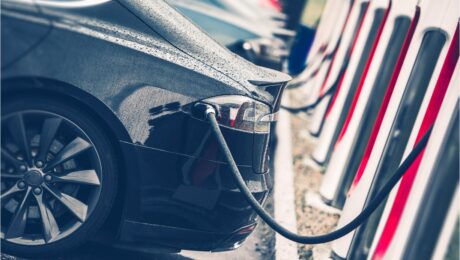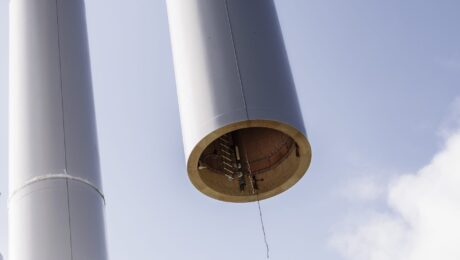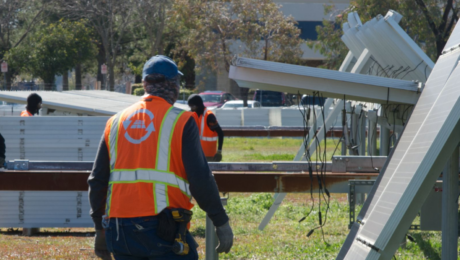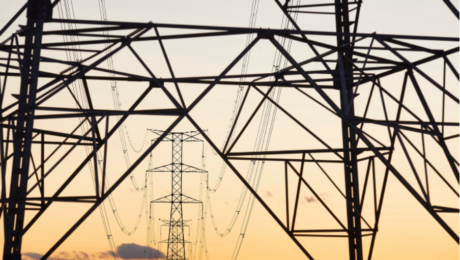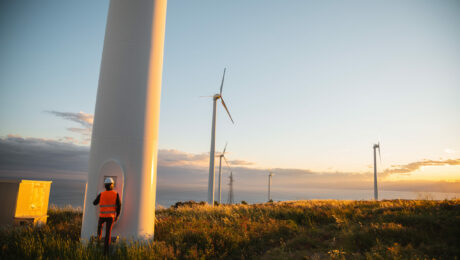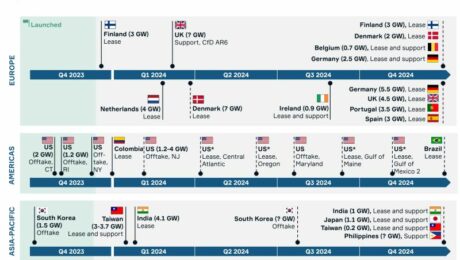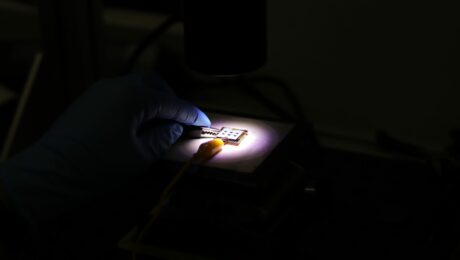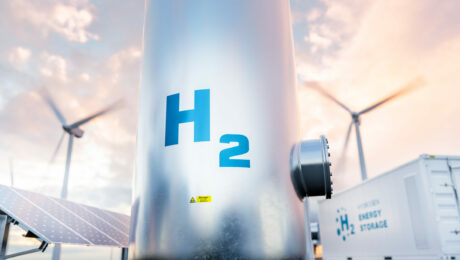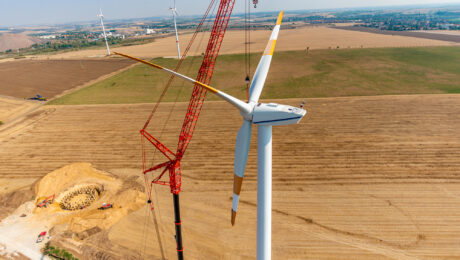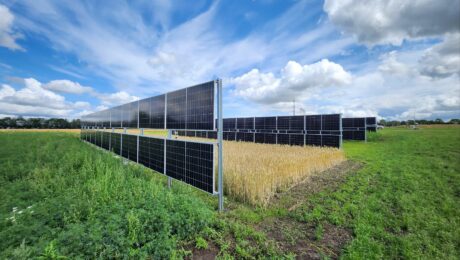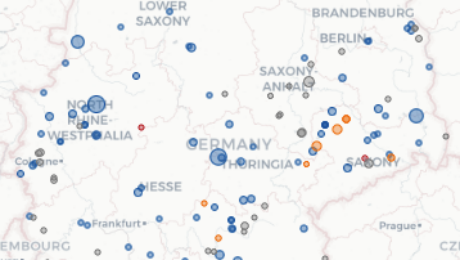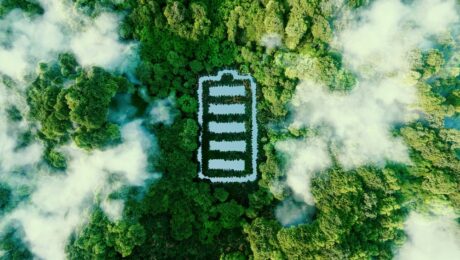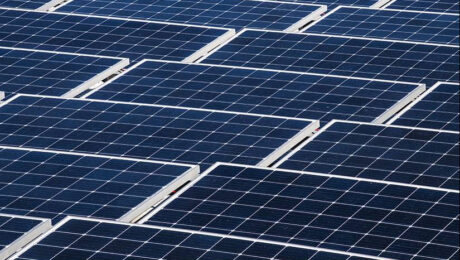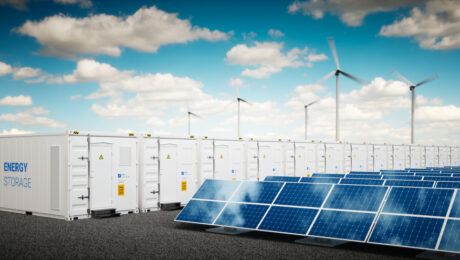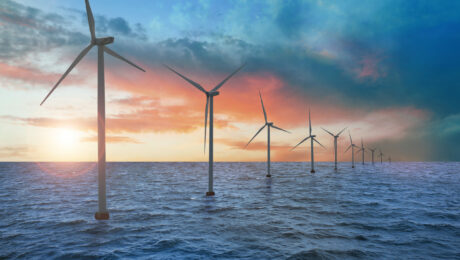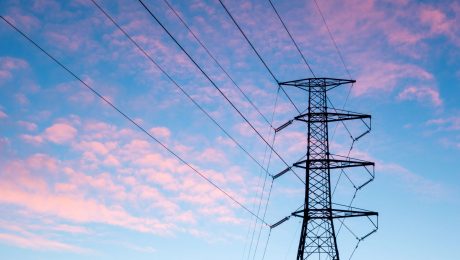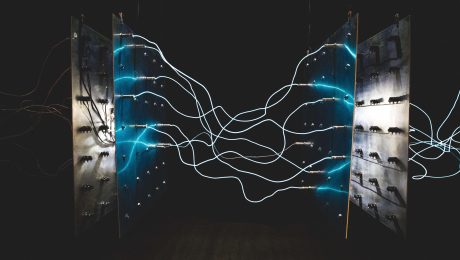Why Italian Solar-PV investments risk moving from south to north
Friday, 26 July 2024
Why Italian Solar-PV investments risk moving from south to north Republished with permission from IlSole24OreNew regulations for photovoltaic plants risk pushing investors towards Northern Italy, creating a territorial imbalance. Recently approved regulations have tightened the rules for installing large-scale ground-mounted photovoltaic systems and agrivoltaic plants. The criteria that determines which areas of the country, particularly
- Published in Uncategorized
How solar parks can increase biodiversity
Thursday, 25 July 2024
How solar parks can increase biodiversity Solar parks often get stick for their impact on biodiversity – but recent research and fresh approaches are telling a different story and demonstrating that solar installations can actually enhance local ecosystems. Biodiversity and renewable energy 1000 times the natural rate. That’s how quickly species around the world are
- Published in Risk
Are solar parks impacting our food supply?
Friday, 19 July 2024
Are solar parks impacting our food supply? Not if you ask farmers. Frauenhofer ISE Are solar parks impacting our food supply? Crops need sun, but so do solar panels, but are solar parks impacting our food supply when installed on farmland? While farmers and researchers argue there is enough room for both agriculture and solar
- Published in Regulatory, Risk
Don’t let noise be a drain on BESS developments
Thursday, 11 July 2024
Don’t let BESS noise be a drain on developments The many benefits of battery energy storage systems (BESS) and the ability for them to be deployed in a relatively small footprint, means that we may soon be seeing them everywhere. That being the case, BESS facilities will get closer and closer to other things, the
- Published in Tech
The grand guide to solar energy
Wednesday, 05 June 2024
Solar energy is quickly becoming a cornerstone in the battle against climate change, accounting for nearly three-quarters of the newly added renewable energy capacity in 2023. This article dives into the fundamentals of solar energy, its renewable nature, uses, and the numerous advantages it offers now and in the future. How does solar energy work?
- Published in Tech
Solar package 1: Overview of the Main New Solar Regulation in Germany
Friday, 24 May 2024
The Solar Package 1 is finally here. Being fully adopted now, what impact will the new Solar Package have on developers?
- Published in Regulatory
The benefits of renewable energy
Friday, 17 May 2024
The Future Relies on Renewable Energy As severe weather events become more frequent and intense, one truth is becoming increasingly clear: the future belongs to renewable energy. Currently, the world economy invests around $1.8 trillion annually in clean energy and infrastructure, compared to roughly $1.1 billion in fossil-fuel infrastructure investments. But to achieve zero emissions by
- Published in News
Matchmaking for renewable energy developers
Thursday, 18 April 2024
The global push for renewable energy is undeniable. As corporations and governments race to meet ambitious sustainability targets, the demand for renewable projects is skyrocketing. Getting the necessary investments remains a significant hurdle for many developers. This is where matchmaking comes in – a strategic yet simple approach that connects developers with the perfect investment
- Published in Green Dealflow
Overcoming NIMBY
Thursday, 18 April 2024
NIMBY Overcoming NIMBY How a large developer overcame NIMBY Developers of renewable energy projects have likely encountered the difficult obstacle course of local opposition against renewable projects. Termed NIMBY (Not in my back yard), this phenomenon, while not new, continues to plague efforts worldwide to ramp up renewable energy installations in pursuit of decarbonization targets,
- Published in News
Why you fail when talking to investors
Wednesday, 17 April 2024
Why developers fail when talking to investors does not come down to just one thing. To increase your odds of getting the green light from investors, we unveil common mistakes developers make when talking to investors. Renewable energy witnessed a substantial influx of global investments in 2023, reaching approximately USD 2.8 trillion. Notably, over USD
- Published in Matchmaking
5 ways to boost insurers’ confidence in BESS projects
Monday, 11 March 2024
Five ways to boost insurers’ confidence in BESS projects With BESS failures having increased ten-fold, here’s your guide to getting sceptical insurers onside. Battery energy storage system (BESS) failures have increased ten-fold since 2016, with “issues pertaining to the quality and performance of BESS” among the major causes, according to a new study published by
- Published in News
Is the EV rollout facing gridlock?
Friday, 01 March 2024
Is the EV rollout facing gridlock? As the European Union takes a decisive step towards a greener future by mandating a 90% reduction in CO2 emissions from new trucks and buses by 2040, the impending face-out of fossil fuel vehicles in heavy transport raises concerns about potential gridlock in the EV rollout. The laudable environmental
- Published in News
Is wood the key to cheaper wind turbines?
Friday, 01 March 2024
Wooden turbine towers: The key to lower prices? Modern wind turbines stand as key players in steering the world towards Net Zero by 2050. Yet, to meet this target, the challenge lies in adding approximately 33,000 wind turbines annually and quintupling current installation growth by decade’s end. The hurdle? Soaring steel and commodity prices hamper
- Published in News
Sustainable Turbine Blades On The Horizon?
Thursday, 25 January 2024
Addressing the recycling challenge associated with wind turbine blades, particularly in a cost-effective manner, has long been a concern for operators of renewable wind projects. While the decommissioning responsibilities typically fall on project owners, the focus has largely been on industrialized decommissioning, neglecting the crucial aspect of constructing high-performance blades from more sustainable materials. The
- Published in News
How to craft a better solar panel decommissioning plan
Thursday, 25 January 2024
Solar panel decommissioning is at an inflection point. Shifts in commodity prices and secondary markets, coupled with rising costs and inflation are calling traditional assumptions about decommissioning into question. Between a massive oversupply of new panels, falling prices, and rising costs, solar decommissioning has become more expensive than many utilities and other solar owners initially
- Published in News
2024: The Year of The Energy Grid?
Tuesday, 16 January 2024
As we enter further into 2024, developers still anticipate governments to take action and overcome the challenges we have regarding an inadequately connected, outdated, and centralized energy grid. Within the EU, the pivotal question emerges: Can the EU Action Plan for Grids, backed by a €584 billion investment until 2030, truly address developers’ pressing grid
- Published in News
What is renewable energy?
Monday, 15 January 2024
In a world seeking sustainable solutions to its energy needs, the rising of renewable energy sources stands as one of the largest hopes to help mend our planet. Unlike fossil fuels—coal, oil, and gas—which demand hundreds of millions of years to form and contribute to harmful greenhouse gas emissions when burned, renewable energy sources offer
- Published in News
Denmark’s Answer to the “Not-In-My-Backyard” Challenge
Thursday, 21 December 2023
Denmark, long admired for its strides in renewable energy, has presented its new agreement to transform the country into a net energy exporter whilst trying to overcome the universal ‘Not-in-my-backyard’ attitude keeping many developers worldwide from breaking new ground. The deal, which comes in the wake of the newly amended European Renewable Energy Directive, rewards
- Published in News
Upcoming offshore wind auctions in 2024
Tuesday, 12 December 2023
2023 has been a busy offshore wind auction year worldwideMore than 10 lease auctions and five support and offtake auctions have taken place this year, but 2024 is currently setting itself up to become the busiest year in the offshore wind history ever according to Aegir Insights. New offshore wind auctions have been announced in
- Published in News
Combination of Stressors Key to Testing Perovskite Solar Cells
Tuesday, 26 September 2023
NREL Research Reveals Importance of Simultaneous Conditions To Determine Problem Areas. Testing Perovskite Solar Cells in “outdoor-real-conditions” is crucial to reach commercialization Perovskite solar cells should be subjected to a combination of stress tests simultaneously to predict best how they will function outdoors, according to researchers at the U.S. Department of Energy’s National Renewable Energy
- Published in News
How much green hydrogen will Europe’s industry need in 2050?
Friday, 15 September 2023
The transition to a climate-neutral industry in Europe is essential to combat the climate crisis. At the center of this industrial transformation is the production of steel, cement and chemicals. A new study by Fraunhofer ISI for the EU Commission has examined the impacts of the industry transition on the European energy system in different
- Published in News
Europe shifted 600 TWh of electricity generation by source to green power in 10 years
Tuesday, 05 September 2023
The road to Net Zero Emissions in 2050 is an essential yet challenging global task to deal with. In the last decade, Europe has shifted its electricity generation by source from fossil fuels to green power. According to data from Ember, green electricity generation by source has never been higher. 59 % of electricity came
- Published in News
Exploring optimal PV setup for agrivoltaics
Friday, 01 September 2023
Discover optimal PV setup for agrivoltaics in Europe through a comprehensive comparative analysis of sustainable energy and agriculture integration. Researchers at Aarhus University in Denmark have analysed three PV setups for the optimal setup for agrivoltaics: Optimal Tilted PV System, Horizontal Single-Axis Tracking PV System and Vertical Bifacial PV System. Introduction: A Sustainable Integration of
- Published in News
Battery Charts: Automated evaluation of German battery storage
Monday, 07 August 2023
The Battery Charts project brings a cutting-edge website that offers an automated evaluation of battery storage in Germany using data from the German Federal Network Agency’s public database (MaStR). The project is developed by Jan Figgener, Christopher Hecht, and Prof. Dirk Uwe Sauer from the Institutes ISEA and PGS at RWTH Aachen University. Let’s delve
- Published in News, Useful Tools
Energy Storage: 4 alternatives to lithium-ion batteries currently exciting investors
Thursday, 22 June 2023
With lithium-ion batteries raising ESG-related concerns, investors are increasingly seeing value in long-duration energy storage. Original article on energy storage alternatives by Ben Cook published on Tamarindo It’s the question being asked by the biggest movers and shakers in the energy storage industry – which type of storage will challenge the dominance of lithium-ion batteries?
- Published in News
Analysis Points to Massive Photovoltaic Deployment To Meet Decarbonization Target
Tuesday, 16 May 2023
An “unprecedented ramp-up of production capacity” (photovoltaic – PV) over the next two decades is needed to provide enough solar power to completely decarbonize the global electrical system, but that goal can be achieved, according to an analysis led by researchers at the National Renewable Energy Laboratory (NREL). The target is 63.4 terawatts of installed
- Published in News
Energy Storage: Why co-located solar & storage is set to take-off
Thursday, 04 May 2023
Original article on energy storage by Ben Cook published on Tamarindo Co-location of renewables assets with storage was rarely considered in the era of subsidies, but it is about to become the norm as investors seek to maximise the value of assets. Given the numerous benefits of co-locating energy storage with solar or wind projects,
- Published in News
Offshore Renewable Plants: the simplified authorization according to art. 72 of draft law-decree PNRR in 10 points
Saturday, 11 February 2023
A new authorisation process accelerates the realisation of reforms introduced by the Italian National Recovery and Resilience Plan with respect to renewable offshore plants. Translation powered by Google Translate: Original article in Italian is below Among the various provisions contained in the draft decree-law on the PNRR being analyzed by the Government to accelerate the
- Published in News
Next Steps in Electricity Markets and Planning
Tuesday, 18 October 2022
Optimizing Electricity Markets for Renewable Energy Development Electricity markets are pivotal in shaping the global energy landscape, responsible for about half of the world’s electricity supply. These markets play a crucial role in resource allocation, competition, and investment in the power sector. However, the need to reduce carbon emissions is driving the imperative for change.
- Published in News, Green Dealflow
The Need for Flexibility and Innovation in the Storage Industry
Wednesday, 05 October 2022
The strong expansion of variable renewables, which are projected to make up more than half of global capacity additions to 2040 in the IEA’s New Policies Scenario (NPS), has major implications for electricity, first among them is the need for increased flexibility in the storage industry. Globally, electricity demand is projected to grow by over
- Published in News, Green Dealflow

